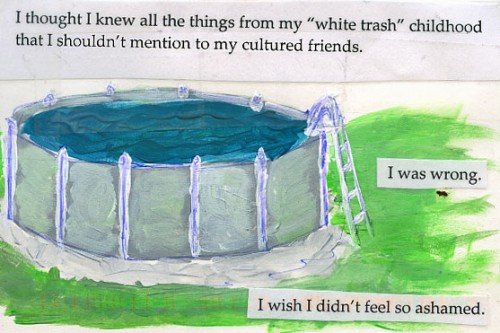 Cross-posted at Montclair SocioBlog.
Cross-posted at Montclair SocioBlog.
Mitt Romney’s capitalism has come under attack – from fellow Republicans, of all people. They’re pummeling him for his work at Bain Capital, his private equity firm. “Private equity” became the term of choice when “leveraged buyout” acquired a connotation of nastiness, probably because many LBOs were in fact nasty affairs (“hostile” takeovers).
Romney is tall and good-looking with a full head of hair. He speaks with no noticeable regional accent. Danny DeVito is a photo negative of all that. But as Lawrence Garfield,* a.k.a. Larry the Liquidator in “Other People’s Money” DeVito does a much better job in making the case for what Mitt did at Bain Capital.** (The original title for this post was “Defending Private Equity – the Short Version.”)
Bain sometimes made money by bankrupting the companies it took over. That’s creative destruction for you – first the destruction, then creation. As Larry the Liquidator puts it***:
You invested in a business and this business is dead. Let’s have the intelligence, let’s have the decency to sign the death certificate, collect the insurance, and invest in something with a future. . .
Take the money. Invest it somewhere else. Maybe, maybe you’ll get lucky and it’ll be used productively. And if it is, you’ll create new jobs and provide a service for the economy and, God forbid, even make a few bucks for yourselves.
Romney’s critics talk about the people put out of work, the towns and communities eviscerated. That’s where Garfield/Romney are on shakier ground.
“Ah, but we can’t,” goes the prayer. “We can’t because we have responsibility, a responsibility to our employees, to our community. What will happen to them?” I got two words for that – “Who cares?”
Larry the Liquidator is raising the issue of shareholders vs. stakeholders. Stakeholders are all those people who are affected by a corporation. To attract corporations, local governments sometimes offer goodies like tax breaks, regulation breaks, and even bagfuls of cash. The localities defend these deals by saying that they will be good for the whole town, particularly for those who become employees or who sell goods and services to the corporation. These people and the town generally will be stakeholders. They all have a stake in the success of the corporation.
Corporations too often talk the stakeholder talk. But when times get tough, they talk the shareholder talk – the talk that Larry does so well. And they walk the shareholder walk. They walk out of town with the money from the sale of the company’s assets.
All this has implications for issues of trust, implications much too broad and deep for a simple blog post. See this 1988 article by Andrei Schleifer and Larry Summers, “Breach of Trust in Hostile Takeovers.”
————————
* Romney is a Mormon. Larry Garfield is of no specified religion, though we can assume he is not a Mormon. In the original play, he was Larry Garfinkle. For Hollywood purposes he became Garfield, just as did actor John Garfinkle.
** Conservapedia, as I’m sure Drek knows, rated “Other People’s Money” as one of the twenty greatest conservative movies.
*** For a transcript of Larry’s speech go here. The original stage play is by Jerry Sterner, the screenplay by Alvin (Three Spidermans) Sargent. I don’t know how much credit each gets for this speech.
Big hat tip to Ezra Klein for the material here.







